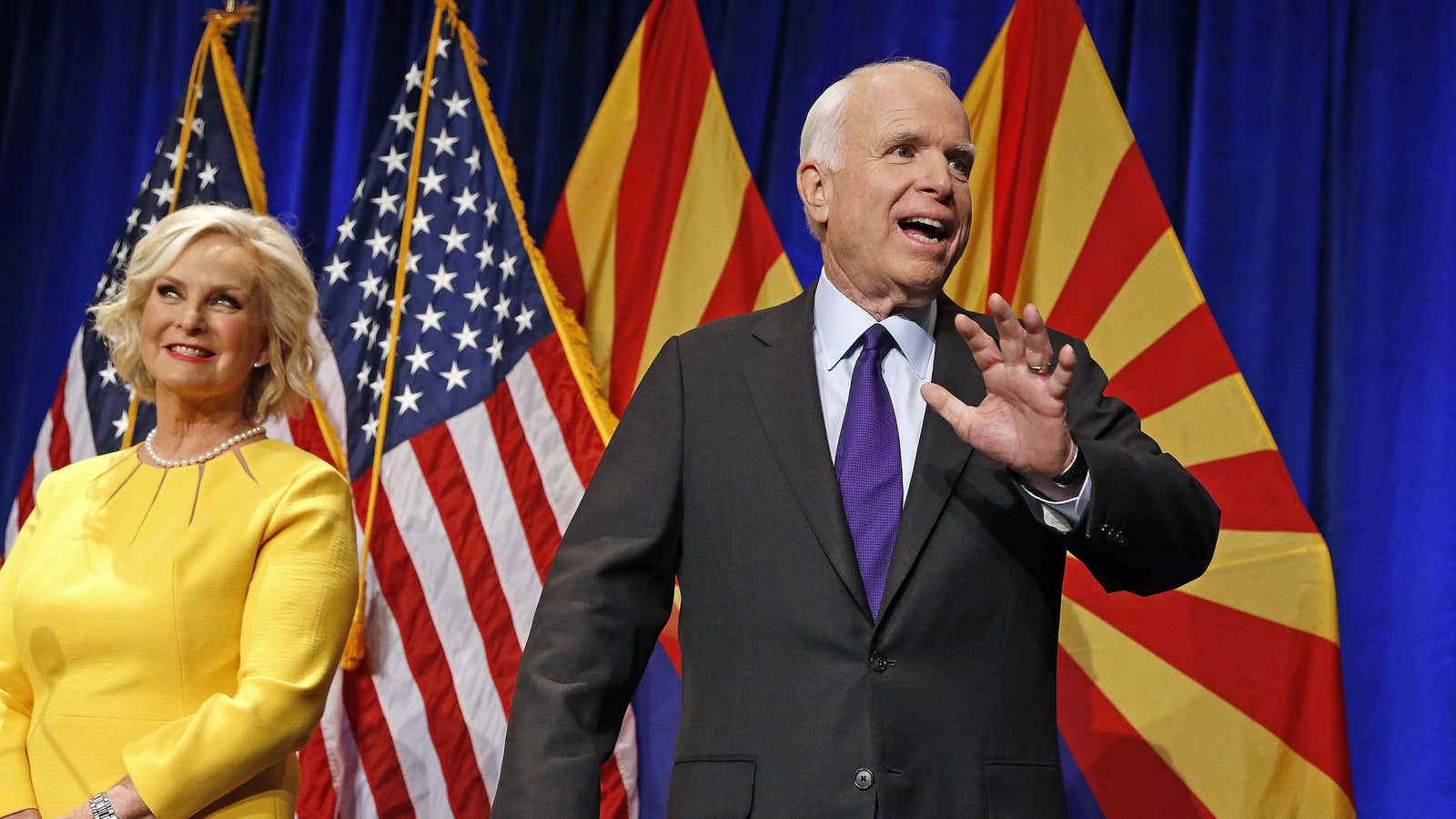Once, not too many weeks ago, US Democrats were reasonably confident they would hold the White House, take control of the Senate, and, if everything broke right, win back the House of Representatives for the first time in a decade.
Now the presidency and both houses of Congress are controlled by Republicans, and Democrats will again be forced to play defense, as they did for most of George W. Bush’s administration. High among their concerns will be trying to block Donald Trump’s Supreme Court nominee (and hoping he only has one court seat to fill). They’ll also need to fight a rollback of Obamacare and a defunding of social programs.
Wining back the House was always a long shot for the Democrats, but many polls put the Senate in reach. Democrats did gain one seat, when Iraq war veteran Tammy Duckworth beat incumbent Mark Kirk, but other breakthroughs failed to materialize. Republican incumbent Kelly Ayotte, thought to be among the most vulnerable senators, fended off Maggie Hassan in New Hampshire; Evan Bayh, a former Democratic senator, couldn’t reclaim an Indiana seat, losing to Todd Young; and former Wisconsin senator Russ Feingold also failed to stage a comeback, losing to Republican Ron Johnson in a rematch of their 2010 race.
Elsewhere, incumbent Richard Burr comfortably beat Deborah Ross in North Carolina, and Marco Rubio, who announced his retirement from politics after dropping out of the Republican primary, retained his Florida senate seat.
In other races of note, Republican John McCain reclaimed his Arizona seat and in New York, Democrat Chuck Schumer easily won reelection, making him the new minority leader following the retirement of Harry Reid. Catherine Cortez Masto, a Nevada Democrat, became the first Latina senator and in a race between two Democratic women in California, which has open primaries, Kamala Harris beat Loretta Sanchez. Harris, who is of mixed race, is the first Indian-American and second African-American woman to serve in the Senate.
While Republicans control the White House and Congress, that doesn’t mean they’ll be unified. Trump broke with his party on trade and he may face a fight with the business-friendly interests in Congress if he tries to impose tariffs, as he’s threatened. There may also be a clash over immigration if Trump proposes radical measures.
He’ll also have to contend with Paul Ryan, the speaker of the House, who was vocally critical of Trump and refused to campaign with him. The enmity between the two men is real, and whether they can form a partnership will be critical in enacting the GOP agenda.
